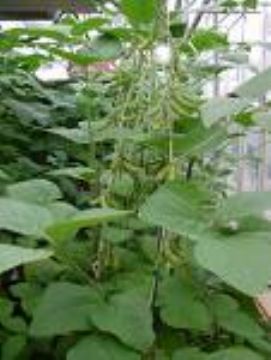Detailed Selling Lead Description
ALSO INDEXED AS: Daidzen, Genistein, Glycine Max, Isoflavone, Protein (Soy), Soya
ACTIONS AND PHARMACOLOGY: Soy, a staple food in many Asian countries, contains valuable constituents, including protein, isoflavones, saponins, and phytosterols. Soy protein provides essential amino acids and can be used as effectively as animal protein by adults. It?s also low in fat and cholesterol-free. The isoflavones in soy, primarily genistein and daidzein, have been well researched by scientists for their antioxidant and phytoestrogenic properties. Saponins enhance immune function and bind to cholesterol to limit its absorption in the intestine. Phytosterols and other components of soy have been reported to lower cholesterol levels. The soy isoflavone genistein has been reported to inhibit angiogenesis, the growth of new blood vessels that, when abnormal, can contribute to the development of cancer. Soy isoflavones have also been shown to inhibit 5 alpha-reductase, the enzyme that activates testosterone in the prostate gland and other tissues. 5 Alpha-reductase inhibition represents a potentially effective therapeutic approach to benign prostate enlargement and male pattern baldness. Isoflavones may reduce the risk of hormone-dependent cancers, such as breast and prostate cancer, as well as other cancers. One study of soy research found that 65% of 26 animal-based cancer studies showed a protective effect of soy or soy isoflavones. Human research also suggests a protective role of soy against cancer,but the data are currently insufficient to form any solid conclusions. A meta-analysis study that pooled 38 trials for re-analysis reported that a soy diet led to cholesterol reductions in 89% of the studies. Increasing soy intake was associated with a 23 mg per deciliter drop in total cholesterol levels. Exactly how soy lowers cholesterol remains in debate. The mild estrogen activity of soy isoflavones may ease menopause symptoms for some women, without creating estrogen-related problems. A group of 58 menopausal women, who experienced an average of 14 hot flashes per week, supplemented their diets with either wheat flour or soy flour every day for 3 months; the women taking the soy reduced their hot flashes by 40%.In one double-blind trial, 60 grams of soy protein led to a 33% decrease in the number of hot flashes after 4 weeks and a 45% reduction after 12 weeks.In addition, soy may help regulate hormone levels in premenopausal women. Soy may also be beneficial in preventing osteoporosis. Isoflavones from soy protect animals from bone loss.Taking 40 grams of soy protein powder containing 90 mg isoflavones increased bone mineral density of the spine according to a double-blind trial.Although the use of soy in the prevention of osteoporosis looks hopeful, knowing to what extent soy reduces bone loss will require further research. SOURCE: In addition to whole soybeans, foods derived from soy include tofu, tempeh, soy milk, textured and hydrolyzed vegetable protein, meat substitutes, soy flour, miso, and soy sauce. Soy is also available as a supplement, as soy protein or isoflavone in powder, capsule, or tablet form. High levels of soy-based isoflavones are in roasted soy nuts, tofu, tempeh, soy milk, and some soy protein isolates. INDICATIONS AND USAGE: (1) Primary uses: High cholesterol; Menopause. (2) Secondary uses: Cancer risk reduction; Osteoporosis. (3) Other uses: Vaginitis.
